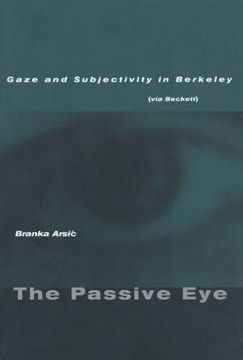Synopsis "The Passive Eye: Gaze and Subjectivity in Berkeley (Via Beckett)"
The Passive Eye is a revolutionary and historically rich account of Berkeley's theory of vision. In this formidable work, the author considers the theory of the embodied subject and its passions in light of a highly dynamic conception of infinity. Arsic shows the profound affinities between Berkeley and Spinoza, and offers a highly textual reading of Berkeley on the concept of an "exhausted subjectivity." The author begins by following the Renaissance universe of vision, particularly the paradoxical elusive nature of mirrors, then shows how this conception of vision was translated into the optical devices and in what way the various ways of deception could be conceived. Reading Berkeley against the backdrop of competing theories, in relation to Leibniz, Spinoza, Newton, Malebranche, Hume, Locke, Molyneux and others, this book gives a meticulous historic reconstruction of Berkeley's theory. This excellent scholarly work presents Berkeley's theory in a new and radical light. The book, presented in three parts, begins by presenting the conceptions of vision prior to Berkeley's intervention. In the second part, the author moves through a careful study of Descartes' theory of vision to arrive at Berkeley. The third part addresses the author's version of Berkeley in which the eye and the image become inseparable due to the collapse of the universe of representation. The problem of vision becomes not that of representation, but of presentation. Through an erudite historic reading of Berkeley's theory and astute comparative assessments, the author uncovers Berkeley's place as a contemporary theoretician, corresponding with such thinkers as Deleuze, Lacan, Foucault, and Derrida.

